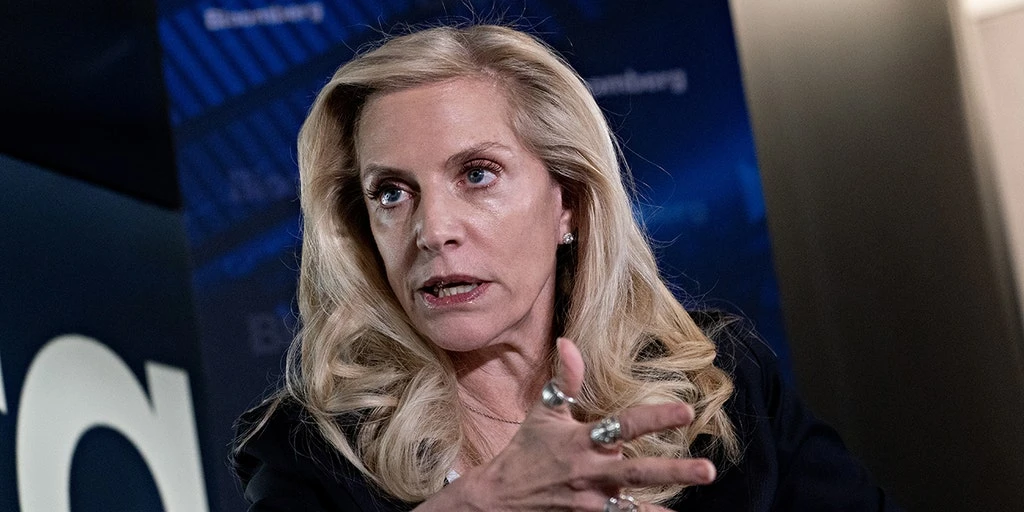The Democratic Party invited a group of Crypto bigwigs to attend the meeting, but the two sides quarreled
Original article: FOX Business; author Eleanor Terrett
مرتب کردہ: Odaily Planet Daily ( @OdailyChina ); Translated by: Azuma ( @azuma_eth )
Editors Note: At 11:45 a.m. EST on Thursday (23:45 last night Beijing time), Democratic Congressman Ro Khanna hosted a meeting on behalf of the Democratic Party to promote communication with the cryptocurrency industry and repair relations between the two sides. Obviously, the Harris team promoted this meeting at the current time point, and its fundamental purpose is to win more support from the cryptocurrency industry in the upcoming election. However, according to FOX Business reporter Eleanor Terrett, the discussion at last nights meeting was not smooth, and the two sides were on edge and the atmosphere was quite tense.
The following is the original text by Eleanor, translated by Odaily Planet Daily.

A Zoom meeting aimed at repairing relations between the Democratic Party and the cryptocurrency industry was held on Thursday morning, but the atmosphere was tense. For the crypto-friendly faction in the party, it is not easy to help Harris win the support of the cryptocurrency industry for the campaign.
The Zoom meeting was hosted by California Congressman Ro Khanna, and was aimed at communicating with cryptocurrency, an emerging industry that has been heavily regulated by the Biden administration (mainly subordinate regulatory agencies such as the SEC and CFTC), and mending relations between the two sides during a critical window of the campaign. With Vice President Harris officially becoming the Democratic presidential candidate, the party is seeking to help Harris win back more votes from cryptocurrency voters from Republican opponent Trump, who has recently been actively courting the industry and vowed to make the United States the worlds crypto capital.
The meeting was attended by about twenty people, including government officials such as Wally Adeyemo, Deputy Secretary of the Treasury, Lael Brainard, Deputy Director of the National Economic Council, Bruce Reed, Deputy Director of the White House Office of Staff, and Kristine Lucius, Harris senior adviser. The cryptocurrency representatives included billionaire Mark Cuban, Anthony Scaramucci, founder of SkyBridge Capital, investor Ron Conway, and some executives from Ripple, Coinbase, Kraken, Uniswap and other companies.
However, the meeting did not seem to reach any formula, and most of the cryptocurrency representatives fiercely criticized White House officials for the regulatory offensive of institutions such as the SEC and the Federal Reserve. Participants told FOX Business that the meeting seemed to repeat the roundtable hosted by Ro Khanna in Washington, D.C. last month, when industry executives also complained to a senior White House official about the unfair treatment they had received during the Biden administration.
An attendee who wished to remain anonymous told FOX Business: “Multiple executives bluntly told government representatives that their crackdown on cryptocurrencies has caused great damage to the industry and the relationship between the Democratic Party… They (government representatives) were basically scolded.”
For example, Ron Conway, an early investor in Coinbase, did not immediately respond to a request for comment. He expressed “vehement” dissatisfaction with the government’s empty promises to the industry.
In another tense moment, when Treasury Undersecretary Wally Adeyemo argued that banks and regulators were not actively trying to isolate the cryptocurrency industry from the broader financial system, an executive asked attendees to show their hands if their company or project had been denied service by a bank because of White House policy. Two attendees told us that almost all industry representatives in attendance raised their hands.
Despite the friction, Anthony Scaramucci told FOX Business that he is optimistic that Harris can gain some support within the cryptocurrency industry.
Anthony Scaramucci noted, “It’s encouraging to see these senior officials take the time to be here and listen to our industry. My peers want things to change immediately, but that’s not how things work in Washington. I think we are making steady progress.”
Paul Grewal, chief legal officer at Coinbase, also had a positive view of the meeting: “This is still a conference hosted by the Biden administration, but the focus now must be on Harris’ campaign and what she is willing to do. She is an ideal representative of the Democratic Party’s break with the past and support for cryptocurrency.”

The market trend seems to be turning towards Harris. On the cryptocurrency-based prediction market Polymarket, Harriss chances of winning the election have now caught up with Trump, and even surpassed him at one point.
This article is sourced from the internet: The Democratic Party invited a group of Crypto bigwigs to attend the meeting, but the two sides quarreled
Related: Why do almost all Web3 social applications fail?
Original title: The Social App Thesis: Why every winning onchain app will be social Original author: David Phelps Original translation: Ismay, BlockBeats Editors note: We live in a capitalist world that believes that money is omnipotent. However, true cultural power is not always proportional to wealth. Being rich not only brings a certain kind of political and cultural influence, but it can also lead to a lack of another kind of cultural power. This article delves into the relationship between the merchant class and cultural tastemakers, revealing the difficulty of converting between money and status. Although there are theoretically many ways to convert financial capital into social capital, it is challenging in practice. We explore the reasons behind this phenomenon and use the cases of Web2 and Web3 to explain…







